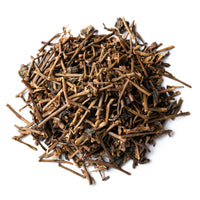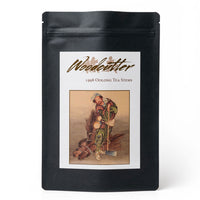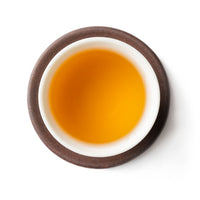


Woodcutter
We call this tea “Woodcutter” to celebrate the old Daoist stories where students seeking a teacher in the mountains ask a simple woodcutter for directions to the master’s hermitage only to later find out the woodcutter was the master. These stories offer many lessons, one of which is to honor the simple, the ordinary, as it is often a treasure. Traditionally, the stems and bits of leaf left over from tea processing are what farmers and their families drink themselves. They sell the highest quality tea and drink what’s left. These stems were often offered as “gong cha,” which is a large pot of tea and bowls left by the roadside for passersby. That people would take the time to walk and clean a pot, changing the tea a few times a week for travelers they themselves would never meet is a wonderful expression of tea spirit. And it was often simple tea just like this. The stems of tea have also been used in Traditional Chinese Medicine for centuries, especially for the throat and upper respiratory system. The chemistry and energy of the stems is obviously very different than the leaves. The stems are starchier and have more sugars, less aminos and catechins and are energetically much more wood element. These amazing stems/leaf bits are powerful because they are the leftovers from the 1998 harvest of an organic tea farm in Zhu Shan, Taiwan. They were stored by Master Tsai Yi Zhe at his tea house since then. The age has changed them powerfully. You can use these stems in three ways: 1) Steep them like ordinary tea. They are patient and powerful and brew up very different than tea leaves. You could also add them to an aged oolong blend, creating all kinds of alchemy! 2) You can boil them. This is the best way to use these stems. The boil will change your day and can literally boil morning to night! 3) So many of you ask us what to do with you spent leaves. Dry your spent leaves in the sun and mix them with about the same quantity of buckwheat and a packet of Woodcutter stems and you have the perfect stuffing for a meditation cushion or a pillow for sleeping. Chinese people have been sleeping on tea pillows for centuries. Trust us, a Chajin should sleep on a tea pillow!
Each bag is 150 grams.



